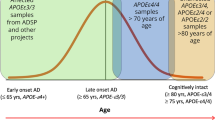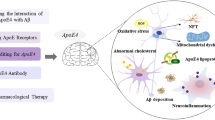Abstract
Methylenetetrahydrofolate reductase (MTHFR) is a gene involved in folate metabolism which may contribute to the risk of Alzheimer disease (AD). In this paper, an association of MTHFR-C677T single nucleotide polymorphism (SNP) with the AD was evaluated by optimized PCR-confronting two-pair primers (PCR-CTPP) genotyping method. For this aim at first, PCR-CTPP method was optimized for detection of this SNP by additive agents and touchdown PCR. Then, an association of the mentioned SNP with the AD was assessed in a case-control study comprising 113 Alzheimer’s patients and 123 controls. Genotyping results showed that additive agents and touchdown PCR are two appropriate strategies for optimization of CTPP method. Our case-control study indicated a significant association between CT genotype (OR = 1.78, 95%CI = 1.04–3.03, p = 0.0357) and T allele (OR = 1.79, 95%CI = 1.07–2.10, p = 0.0273) with AD. Also, MTHFR-C677T polymorphism is associated with AD in a dominant model (OR = 1.79, 95%CI = 1.07–2.10, p = 0.0273). These results recommend that MTHFR-C677T polymorphism increases the risk of Alzheimer disease and can be a biomarker in the screening of this disease. And genotyping of aforementioned SNP could be performed by optimized PCR-CTPP a time-saving and reliable method.



Similar content being viewed by others
References
Ahlawat S, Sharma R, Maitra A, Roy M, Tantia MS (2014) Designing, optimization and validation of tetra-primer ARMS PCR protocol for genotyping mutations in caprine Fec genes. Meta Gene 2:439–449
Dorszewska J, Florczak J, Rozycka A, Kempisty B, Jaroszewska-Kolecka J, Chojnacka K, Trzeciak WH, Kozubski W (2007) Oxidative DNA damage and level of thiols as related to polymorphisms of MTHFR, MTR, MTHFD1 in Alzheimer’s and Parkinson's diseases. Acta Neurobiol Exp 67:113–129
Ebrahimi A, Hosseinzadeh Colagar A, Karimian M (2017) Association of human methionine synthase-A2756G transition with prostate cancer: a case-control study and in silico analysis. Acta Med Iran 55:297–303
Elkins JS, Johnston SC, Ziv E, Kado D, Cauley JA, Yaffe K (2007) Methylenetetrahydrofolate reductase C677T polymorphism and cognitive function in older women. Am J Epidemiol 166:672–678
Goyette P, Summer JS, Milos R (1994) Human methylenetetrahydrofolate reductase: isolation of cDNA, mapping and mutation. Nat Genet 7:195–200
Green MR, Sambrook J (2012) Molecular cloning: a laboratory manual. Cold Spring Harbor Laboratory Press, New York
Hamajima N (2001) PCR-CTPP: a new genotyping technique in the era of genetic epidemiology. Expert Rev Mol Diagn 1:119–123
Hamajima N, Saito T, Matsuo K, Kozaki KI, Takahashi T, Tajima K (2000) Polymerase chain reaction with confronting two-pair primers for polymorphism genotyping. Jpn J Cancer Res 91:865–868
Ho PI, Collins SC, Dhitavat S, Ortiz D, Ashline D, Rogers E, Shea TB (2001) Homocysteine potentiates beta-amyloid neurotoxicity: role of oxidative stress. J Neurochem 78:249–253
Hua Y, Zhao H, Kong Y, Ye M (2011) Association between the MTHFR gene and Alzheimer’s disease: a meta-analysis. Int J Neurosci 121:462–471
Jamali S, Karimian M, Nikzad H, Aftabi Y (2016) The c.-190 C>A transversion in promoter region of protamine1 gene as a genetic risk factor for idiopathic oligozoospermia. Mol Biol Rep 43:795–802
Karimian M, Colagar AH (2016) Association of C677T transition of the human methylenetetrahydrofolate reductase (MTHFR) gene with male infertility. Reprod Fertil Dev 28:785–794
Karimian M, Hosseinzadeh Colagar A (2016) Methionine synthase A2756G transition might be a risk factor for male infertility: evidences from seven case-control studies. Mol Cell Endocrinol 425:1–10
Karimian M, Hosseinzadeh Colagar A (2017) Human MTHFR-G1793A transition may be a protective mutation against male infertility: a genetic association study and in silico analysis. Hum Fertil:1–9. https://doi.org/10.1080/14647273.2017.1298161
Kim JM, Stewart R, Kim SW, Yang SJ, Shin IS, Shin HY, Yoon JS (2008) Methylenetetrahydrofolate reductase gene and risk of Alzheimer’s disease in Koreans. Int J Geriatr Psychiatry 23:454–459
Korbie DJ, Mattick JS (2008) Touchdown PCR for increased specificity and sensitivity in PCR amplification. Nat Protoc 3:1452–1456
Kruman II, Kumaravel TS, Lohani A, Pedersen WA, Cutler RG, Kruman Y, Haughey N, Lee J, Evans M, Mattson MP (2002) Folic acid deficiency and homocysteine impair DNA repair in hippocampal neurons and sensitize them to amyloid toxicity in experimental models of Alzheimer’s disease. J Neurosci 22:1752–1762
Lundberg GA (2007) A rapid one-tube PCR method for simultaneously differentiating homozygotes and heterozygotes of the Sp1 binding site polymorphism in collagen type Ialpha1. Mol Cell Probes 21:239–241
Mansouri L, Fekih-Mrissa N, Klai S, Mansour M, Gritli N, Mrissa R (2013) Association of methylenetetrahydrofolate reductase polymorphisms with susceptibility to Alzheimer’s disease. Clin Neurol Neurosurg 115:1693–1696
Mazaheri M, Karimian M, Behjati M, Raygan F, Colagar AH (2017) Association analysis of rs1049255 and rs4673 transitions in p22phox gene with coronary artery disease: a case-control study and a computational analysis. Ir J Med Sci 186:921–928
McKhann G, Drachman D, Folstein M, Katzman R, Price D, Stadlan EM (1984) Clinical diagnosis of Alzheimer’s disease: report of the NINCDS-ADRDA work group under the auspices of department of health and human services task force on Alzheimer’s disease. Neurology 34:939–944
Montanaro L, Arciola CR (2002) Detection of the G→T polymorphism at the Sp1 binding site of the Collagen Type I α 1 gene by a novel ARMS-PCR method. Genet Test 6:53–57
Nikzad H, Karimian M, Sareban K, Khoshsokhan M, Colagar AH (2015) MTHFR-Ala222Val and male infertility: a study in Iranian men, an updated meta-analysis and an in silico-analysis. Reprod BioMed Online 31:668–680
Raygan F, Karimian M, Rezaeian A, Bahmani B, Behjati M (2016) Angiotensinogen-M235T as a risk factor for myocardial infarction in Asian populations: a genetic association study and a bioinformatics approach. Croat Med J 57:351–362
Soleimani Z, Kheirkhah D, Sharif MR, Sharif A, Karimian M, Aftabi Y (2017) Association of CCND1 gene c. 870G>A polymorphism with breast cancer risk: a case-control study and a meta-analysis. Pathol Oncol Res 23:621–631
Takeda S, Ichii S, Nakamura Y (1993) Detection of K-ras mutation in sputum by mutant-allele-specific amplification (MASA). Hum Mutat 2:112–117
Tamakoshi A, Hamajima N, Kawase H, Wakai K, Katsuda N, Saito T, Ito H, Hirose K, Takezaki T, Tajima K (2003) Competitive amplification and unspecific amplification in polymerase chain reaction with confronting two-pair primers. J Mol Diagn 4:103–107
Wang B, Jin F, Kan R, Ji S, Zhang C, Lu Z, Zheng C, Yang Z, Wang L (2005) Association of MTHFR gene polymorphism C677T with susceptibility to late-onset Alzheimer’s disease. J Mol Neurosci 271:23–27
Wehr H, Bednarska-Makaruk M, Łojkowska W, Graban A, Hoffman-Zacharska D, Kuczyńska-Zardzewiały A, Mrugała J, Rodo M, Bochyńska A, Sułek A, Ryglewicz D (2006) Differences in risk factors for dementia with neurodegenerative traits and for vascular dementia. Dement Geriatr Cogn Dis Extra 22:1–7
Yin G, Mitsuda Y, Ezaki T, Hamajima N (2012) A new PCR method: one primer amplification of PCR-CTPP products. Mol Biotechnol 52:180–183
Zamani-Badi T, Karimian M, Azami-Tameh A, Nikzad H (2017) Association of C3953T transition in interleukin 1β gene with idiopathic male infertility in an Iranian population. Hum Fertil:1–7. https://doi.org/10.1080/14647273.2017.1384857
Author information
Authors and Affiliations
Corresponding author
Ethics declarations
Conflict of interest
The authors declare that they have no conflict of interest.
Ethical statement
All procedures followed were by the ethical standards of the responsible committee on human experimentation (institutional and national) and with the Helsinki Declaration of 1975, as revised in 2008. Informed consent was obtained from all patients for being included in the study.
Additional information
Capsule: The aim of this study was to investigate the association of MTHFR-C677T polymorphism with Alzheimer disease by optimized PCR-confronting two-pair primers genotyping method. Finding showed a significant association between MTHFR-C677T and Alzheimer disease. Also, optimized PCR-CTPP is an inexpensive, time-saving, and reliable method for the SNP genotyping.
Rights and permissions
About this article
Cite this article
Colagari, F.D., Hossienzadeh Colagar, A. & Zamani, M. Human MTHFR-C677T gene transition increased risk of Alzheimer disease: a case-control study which performed by optimized PCR-CTPP method. Comp Clin Pathol 27, 879–885 (2018). https://doi.org/10.1007/s00580-018-2676-7
Received:
Accepted:
Published:
Issue Date:
DOI: https://doi.org/10.1007/s00580-018-2676-7




